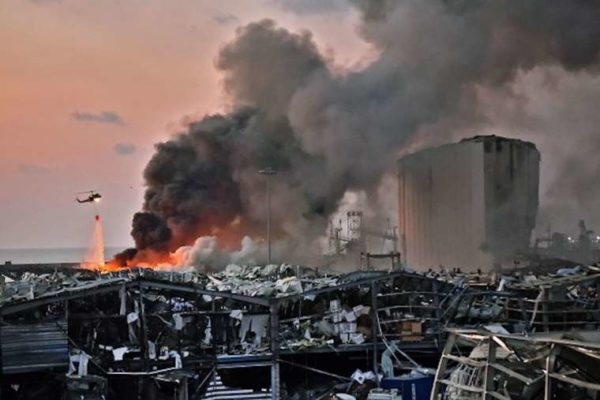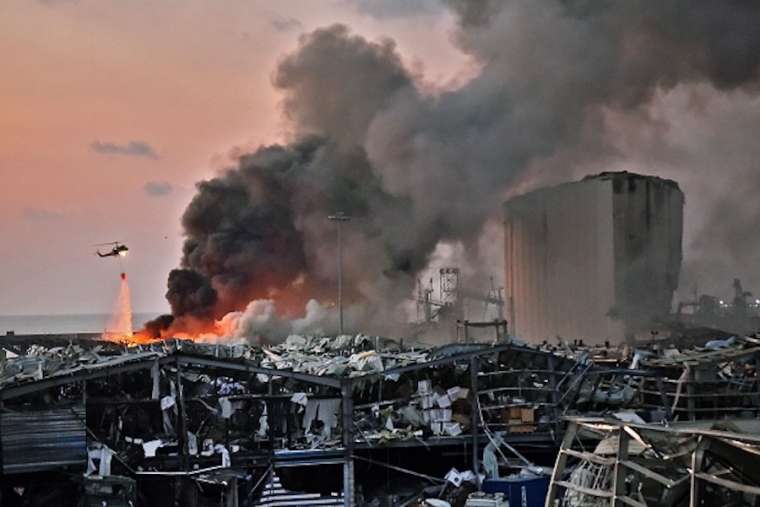The death toll of August 4 devastating explosion in the Lebanese capital, Beirut, has exceeded 200, according to officials.
Beirut Governor Marwan Abboud said dozens were still missing, many of them foreign workers.
On August 9, there was a second night of violence in Beirut, as police clashed with protesters angry with the government’s response to the disaster.
The resignation of three members of the cabinet, including the justice minister on August 10, has not quelled the fury.
Fresh protests have been called for August 10 when PM Hassan Diab is due to chair a cabinet meeting.
PM Diab has said the blast was the result of the detonation of 2,750 tonnes of ammonium nitrate that had been stored unsafely at Beirut’s port for six years.
The decision to keep so much hazardous material in a warehouse near the city center has been met with disbelief by many Lebanese, who have long accused the political elite of corruption, neglect and mismanagement.
Marwan Abboud was quoted by the al-Marsad Online news website as saying the death toll from the explosion had risen to 220, and that 110 people remained missing.
The governor told the Al Jadeed TV channel that many foreign workers and lorry drivers were among the missing, which he said had made identifying them more difficult.
The Lebanese army, meanwhile, said it was calling off the rescue phase of the search operation at the port because no survivors had been found.
Elsewhere in Beirut, hundreds of thousands of people are living in severely damaged homes, many without windows or doors.

Beirut Explosion: World Leaders Attend Virtual Conference to Secure Aid for Lebanon
Beirut Explosion: Rescuers Search for Survivors as 113 People Are Confirmed Dead
Beirut Explosion: At Least 27 Killed And More Than 2,500 Injured
Officials have estimated that the explosion caused more than $3 billion of damage and that Lebanon’s collective economic losses may amount to $15 billion.
Lebanon was already suffering a major economic downturn before the explosion, with families pushed into poverty and hunger, and UN agencies have warned of a humanitarian crisis unless food and medical aid are delivered swiftly.
International donors pledged $297 million in aid for Lebanon at a virtual summit on August 9 hosted by French President Emmanuel Macron.
A joint statement underscored their concerns about corruption, saying that the assistance should be “directly delivered to the Lebanese population, with utmost efficiency and transparency”.
The donors said further assistance was dependent on Lebanese authorities fully committing to “timely measures and reforms expected by the Lebanese people”.
